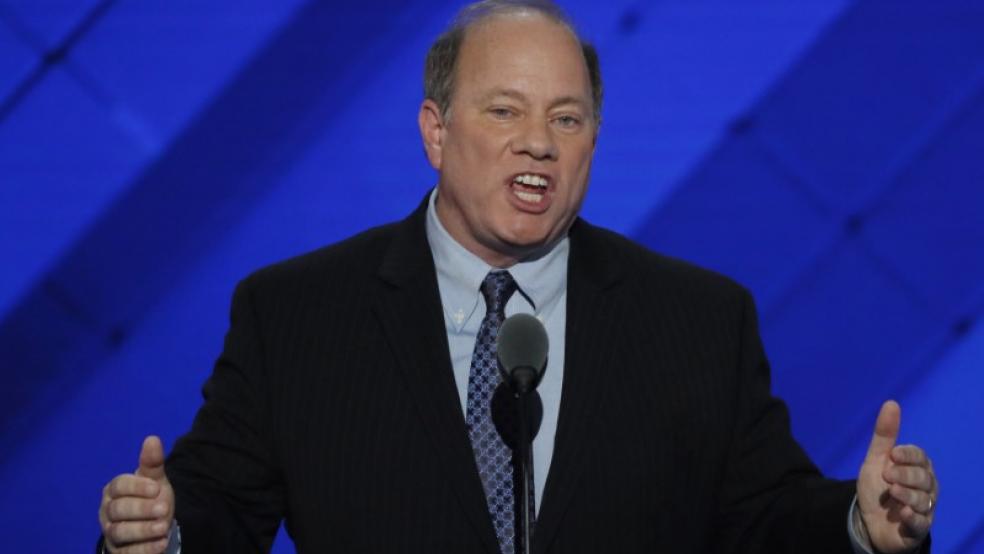WASHINGTON (Reuters) - U.S. voting rights advocates scored a string of courtroom victories this year that rolled back some of the nation's most restrictive voting laws. Now they face another challenge: making sure those rulings are not undermined by officials who oversee elections at the local level.
With early voting already under way ahead of the Nov. 8 election, local officials in several states are trying to enforce restrictions that have been suspended or struck down in court, civil rights advocates say. In some cases, the action appears to be the result of bureaucratic confusion. In other cases, they appear to be actively resisting the law."There are still too many places where voting is going to be difficult and confusing, not easy and straightforward," said Leah Aden, senior counsel at the NAACP Legal Defense Fund.The foot-dragging by local officials adds another element of uncertainty to what already promises to be a volatile election.The Supreme Court ruled in 2013 that states with a history of racial discrimination don't have to win approval from the U.S. Justice Department when they want to change the way they conduct elections - the first time the Deep South will be free of federal oversight since 1964. That same ruling has also hobbled the Justice Department's ability to dispatch observers to potentially troublesome spots, raising concerns that it will be harder to deal with any problems that unfairly stop voters from casting their ballots. Voters in 14 states will also face new voting restrictions, from scaled-back early voting hours to photo-identification requirements, according to New York University's Brennan Center for Justice. Roughly 10 percent of eligible voters do not have a government-issued photo ID, including a disproportionate share of minority, poor, student and elderly voters.Republican state legislators who have passed laws paving the way for these changes say they are needed to fight voter fraud. Numerous studies of the issue, however, suggest there is scant evidence of voter fraud in past elections. One study by Justin Levitt, a Loyola University law professor who now heads the Justice Department's voting rights section, found only 31 cases of voter impersonation out of more than 1 billion votes cast between 2000 and 2014. COURT VICTORIESVoting rights advocates have managed to roll back some of those restrictions in Texas, North Carolina, North Dakota, Kansas, Ohio and Wisconsin, potentially making it easier for millions of people to vote in states that have the potential to determine the outcome of the election.Not all court challenges have been successful. Civil rights groups in Arizona have failed to defeat a new law that makes it illegal for them to collect absentee ballots by hand, a popular practice in Hispanic and Native American neighborhoods. Republican legislators said the law was needed to combat fraud, though they could cite no examples."Now if I go help a neighbor of mine and I take his ballot for him I can serve a year in prison. That’s really scary," said Antonio Valdovinos, who heads La Machine, a Hispanic activist group.In other states, local officials in some of those states have resisted putting those rulings into effect. After a federal judge ruled that Texas' stringent photo-ID law discriminated against black and Hispanic voters, state officials agreed to allow voters who have trouble getting a drivers' license or other approved ID card to provide other forms of identification, such as a utility bill.But in September, the same judge found the state had not properly told voters about the loosened requirements and ordered the state to rewrite voter education materials. "ON THE PRECIPICE"With early voting under way, poll workers in at least seven counties in Texas are still posting misleading signs that tell voters they must provide a photo ID, according to the Texas Civil Rights Project, a coalition of grassroots groups. Officials at the state and the county level say they are in the process of updating posters and educating workers about the new rules, which have been in place since August. In Wisconsin, clerks in many state offices have refused to issue voting cards to people who don't have the documents necessary to get a photo ID, despite a court order requiring them to do so, activists say. A federal judge found earlier this month that the state had not done enough to tell its employees, as well as voters, about the ruling. In some cases state officials have only agreed to comply after months of wrangling.In Kansas, Secretary of State Kris Kobach – a leading proponent of stricter voter identification requirements – refused for months to comply with a May court ruling that ordered him to restore the voting rights of 18,000 residents who had been kept off registration lists because they did not provide proof of U.S. citizenship. He gave in last month, when he was threatened with contempt of court. "We think we've won these cases, we get the good legal ruling, but the implementation is where the actual details are," said Dale Ho, head of the American Civil Liberties Union's voting rights project.On top of that, Republican presidential candidate Donald Trump has encouraged his supporters to patrol voting sites to look for possible signs of fraudulent voting, raising fears that his supporters might try to intimidate black, Hispanic and Muslim voters. "We are on the precipice of the most chaotic election for people of color in 50 years," said Wade Henderson, president of the Leadership Conference on Civil Rights, a coalition of more than 200 national rights groups. (Additional reporting by John Whitesides, editing by Ross Colvin)Winning in court, losing on the ground: uncertainty clouds U.S. voting rights

Charles Mostoller



